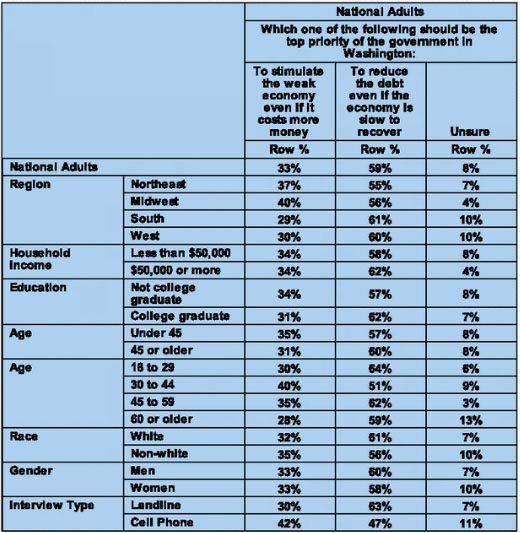“Given a choice,” says McClatchy’s Steven Thomma, “59 percent of Americans prefer reducing debt even if that slows the economic recovery.” Thomma wouldn’t lie about his own poll, but that’s still a pretty gobsmacking result. So I had to go look for myself. And luckily for my sanity, I don’t believe the poll says quite what Thomma thinks it does. Here’s the detail:

It turns out only that most people want to reduce the national debt “even if the economy is slow to recover.” That’s quite a bit different from wanting to reduce the national debt “even if it causes the economy to be slow to recover.” There’s a little bit of association between spending and strength of recovery when you read both of the poll’s options to people, but it’s pretty thin.
At the same time, whether we like it or not, this poll does pretty clearly tell us two things: (a) most people probably don’t link stimulus spending with helping the economy to recover faster, and (b) large majorities are pretty obsessed about cutting the national debt — and those large majorities cut across practically every demographic subgroup. If you want to know why President Obama is willing to cut a deal with Republicans to drastically cut federal spending, this is it. We liberals have miserably failed to make the case for stimulus spending, and as a result conservatives have spectacularly succeeded in reverting the American public to its default state of believing that the federal books should always be balanced, the same as household books. On this score, we’ve just been flatly outplayed over the past couple of years.

















